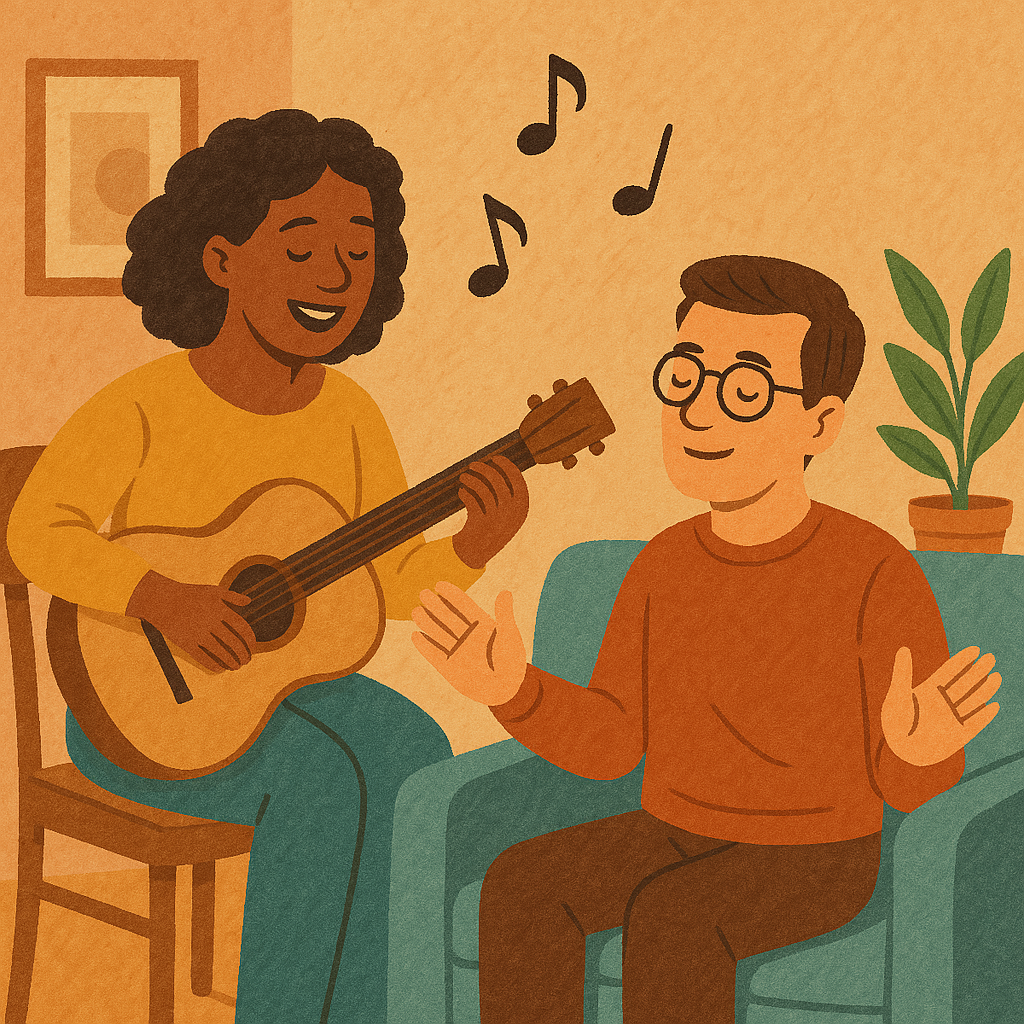
Introduction to Music Therapy
What is Music Therapy?
Music therapy is more than just listening to your favorite playlist when you’re feeling down—it’s a clinical, evidence-based practice that uses music to address physical, emotional, cognitive, and social needs. It’s facilitated by trained professionals who know how to use the power of music to spark transformation.
Brief History and Evolution
Who Uses Music Therapy Today?
Music therapy is used across various populations: kids, teens, adults, seniors, people with disabilities, mental health patients, trauma survivors—you name it. It’s truly a universal tool.
The Science Behind Music and Emotions
How the Brain Responds to Music
Ever had chills from a beautiful song? That’s your brain lighting up. Music activates the auditory cortex, but also the limbic system (emotion center) and motor areas—even if you’re not moving. It’s a full-body experience.
Music and Hormonal Response
Listening to calming music? You’re likely reducing cortisol (the stress hormone). Upbeat tunes? That’s dopamine kicking in—your feel-good neurotransmitter. Music literally changes your chemical state.
Neurological Effects of Music
Studies using fMRI scans show that music affects areas of the brain related to reward, emotion, and memory. This makes music a powerful tool, especially for emotional well-being and therapeutic recovery.
Emotional Benefits of Music Therapy
Reducing Stress and Anxiety
Music therapy has been shown to significantly reduce anxiety levels, especially in clinical settings like pre-surgery environments or psychiatric wards.
Soothing Effects of Rhythm and Melody
Slow tempo, consistent rhythms, and soft melodies can regulate breathing and heart rate, creating a calming effect. Think of it like a lullaby for your nervous system.
Enhancing Mood and Motivation
Music can be an instant pick-me-up. Whether it’s a motivating beat during a workout or an uplifting chorus that brings back good memories, music therapy channels this emotional boost with purpose.
Building Emotional Resilience
Through structured sessions, clients learn to explore and express emotions safely. This leads to improved self-awareness and emotional coping skills.
Aiding in Trauma Recovery
Music helps process traumatic memories non-verbally. For many, it’s a safe entry point to feelings that are too painful or confusing to express in words.
Music Therapy in Mental Health Treatments
Depression and Music Interventions
From songwriting to drumming, music therapy provides an outlet that can reduce feelings of isolation and hopelessness. It’s a creative lifeline for many battling depression.
PTSD and Music as a Tool for Healing
Veterans and trauma survivors often use music therapy to process painful memories and find emotional balance. The rhythm helps ground them, and expressive work helps release pent-up feelings.
Music Therapy for Children and Adolescents
Kids might struggle to verbalize emotions, but music gives them a way to express and regulate feelings. It’s especially effective for children with behavioral challenges or developmental delays.
Types and Techniques in Music Therapy
Active vs. Receptive Music Therapy
Active sessions involve playing instruments, singing, or composing music. Receptive ones involve listening to music while engaging in reflective discussions or relaxation exercises.
Songwriting and Lyric Analysis
Writing lyrics helps people put their feelings into words. Discussing existing lyrics allows clients to connect their experiences with themes in music.
Improvisation and Instrument Play
Spontaneous music-making can be a raw and powerful emotional release. No experience required—just expression.
Guided Imagery with Music (GIM)
This advanced method involves listening to music while being guided through imagery experiences to access inner emotions, memories, and healing.
Music Therapy in Different Settings
Hospitals and Rehabilitation Centers
Music is used to help manage pain, ease anxiety, and motivate physical rehabilitation in medical settings.
Schools and Educational Settings
From supporting children with ADHD to improving social interaction in autism programs, music therapy has major educational benefits.
Elder Care and Dementia Units
Music evokes memories, even in advanced dementia patients. Singing familiar songs can reawaken identity and improve mood.
Case Studies and Real-Life Applications
Music Therapy for Cancer Patients
Many oncology departments now offer music therapy to reduce pain, lower anxiety, and help patients find moments of peace.
Veterans and War Survivors
Drumming groups, songwriting, and listening therapy have helped countless veterans reintegrate emotionally and socially.
Autism Spectrum and Music Engagement
Music offers structure and stimulation that many individuals on the autism spectrum respond to. It supports communication, emotion regulation, and social connection.
How to Get Started with Music Therapy
Finding a Certified Music Therapist
Look for board-certified professionals (MT-BC) through trusted associations like the AMTA. Credentials matter.
What to Expect in a Session
Expect a mix of conversation and music-based activities tailored to your needs. It’s all about connection, expression, and healing.
Can You Practice Music Therapy at Home?
While certified therapists offer deeper guidance, you can still benefit from mindful music listening, journaling to songs, or playing music that matches your emotional state.
The Future of Music Therapy
Technology and Personalized Music Medicine
Expanding Access and Awareness
More insurance providers are recognizing its benefits, and schools, prisons, and community centers are adding music therapy to their programs.
Conclusion
Music therapy isn’t just about feeling better—it’s about reconnecting with yourself through sound, emotion, and expression. Whether you’re managing stress, coping with trauma, or just want to feel more balanced, music therapy offers a rhythm your heart can dance to.
FAQs
Anything from drums and guitars to pianos and maracas—whatever supports the client’s goals and comfort level.
Absolutely. It’s about expression, not performance. No skill required.
Some people feel better in just a few sessions, while others benefit from long-term support. It depends on the individual and their goals.
Yes! It’s adaptable to all ages, backgrounds, and conditions.
Yes, apps like Calm, Headspace, and even custom playlists can offer therapeutic value—just not the full depth of clinical music therapy.




